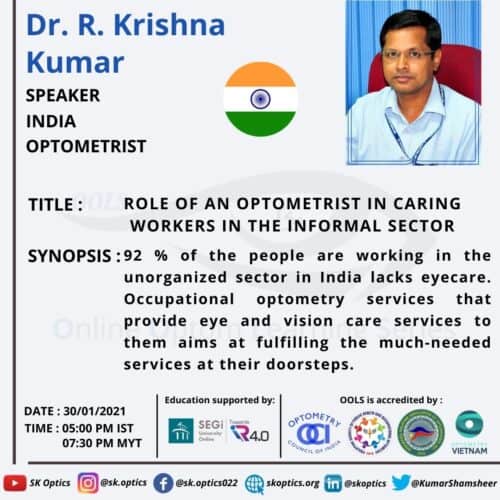
Dr. R. Krishna Kumar, a practicing optometrist, and an educator explains the importance of optometrist’s role in caring for workers in the informal sector. We learn about the need for eye care in the unorganized work sector in India.
Dr. Krishna Kumar elaborates on the differences in the organized and unorganized sectors of work. We understand the organized and unorganized sector’s eye healthcare providers and the reason for extensive eye care in the unorganized sector.
The existing primary eye care model in India and its drawbacks are discussed. Dr. Krishna Kumar suggests a simple way to overcome the disadvantages of the current eye care services. We learn in detail about occupational optometry.
- What is occupational optometry?
- Roles of an occupational optometrist
- Occupational optometry services
We learn in-depth about the visual task analysis and all the steps that an optometrist should carry out for a successful analysis.
- Size and working distance
- Working posture and gaze direction
- Special accuracy and care
- Workplace hazards
- Workplace lighting
- Establishing visual standards
- Vision testing requirements
This detailed discussion is followed by examples of the visual task analysis for goldsmiths, auto-mobile mechanics, and salt pan workers. The talk ends with a question and answers session with the live audience.
References
Papers
Misra V, Vashist P, Malhotra S, Gupta SK. Models for primary eye care services in India. Indian J Community Med. 2015 Apr-Jun;40(2):79-84.
More Relatable Blogs:
